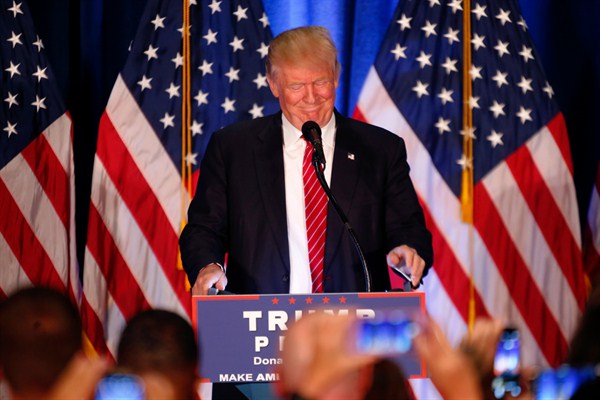After several disastrous weeks of gaffes and tumbling poll numbers, Republican presidential nominee Donald Trump decided this week to turn his attention to what he considers a key selling point of his campaign: national security, particularly the threat from violent Islamic extremists. He used a speech in Youngstown, Ohio, to lay out his ideas on this issue. It offered an important window into Trump’s thinking and the mindset of his supporters. Unfortunately the picture that emerged was one of incoherence and complete disregard for the time-tested logic of strategy.
Like most Trump speeches, this one was full of hyperbole, bluster and misrepresentation. Near the beginning, for instance, Trump equated today’s conflict with the self-declared Islamic State to America’s 20th-century struggles with fascism, Nazism and communism. In reality, the Islamic State poses nowhere near the threat as those earlier enemies. Trump asserted that the 2015 nuclear agreement reached by the U.S. and other world powers with Iran put that nation “on a path to nuclear weapons,” when in reality it did the opposite. And he accused President Barack Obama of failing to “establish” a new status of forces agreement with Iraq when, again, in reality the Iraqi government was adamantly opposed to the idea and would never have accepted it.
Trump’s tendency to take credit for things done by others was also on full display in the Youngstown speech. He once again asserted that his criticism of NATO compelled the alliance to take on counterterrorism when, in reality, it has been doing so since the 9/11 attacks. Trump said that he would “aggressively pursue joint and coalition military operations to crush and destroy ISIS, international cooperation to cut off their funding, expanded intelligence sharing, and cyberwarfare to disrupt and disable their propaganda and recruiting.” Rather than reflecting innovation, this simply summarizes what the George W. Bush and Obama administrations have done to counter terrorist groups in general, including the Islamic State.

